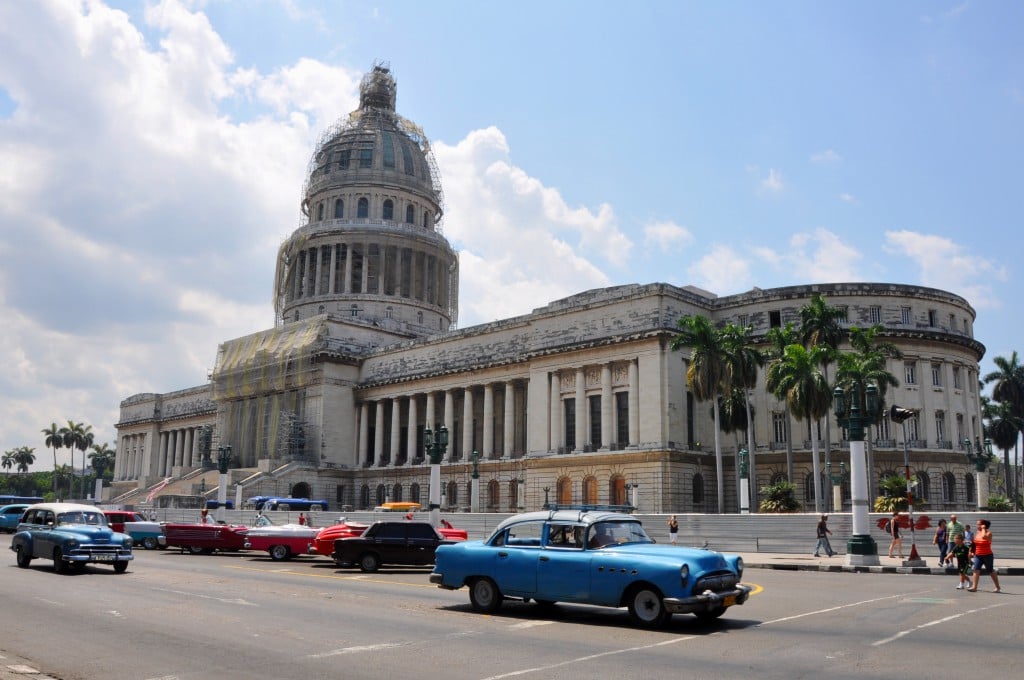On January 26, 2016, the U.S. Treasury Department’s Office of Foreign Assets Control (“OFAC”) and the U.S. Commerce Department’s Bureau of Industry and Security (“BIS”) announced amendments (the “Amendments”) to the Cuban Assets Control Regulations (“CACR”) and the Export Administration Regulations (“EAR”) in a continuing effort to implement elements of the policy announced by President Obama on December 17, 2014 to engage and empower the Cuban people. The Amendments follow two earlier rounds of relaxation on January 16, 2015 and on September 18, 2015. The Amendments went into effect on January 27, 2016 (See 81 FR 4583 for OFAC amendments and 81 FR 4580 for BIS amendments). Below we highlight some of the more significant amendments. All of these provisions are subject to important caveats and limitations, and companies should carefully review the amended CACR and EAR before engaging in any new transactions with Cuba. Detailed information about the Amendments is available in updated “Frequently Asked Questions” documents issued by OFAC and by BIS as well as in a joint press release issued by both agencies. Note that despite these new Amendments, the embargo remains in place and most Cuba-related activities—including travel to Cuba for tourism, investment in Cuba, and general trade with Cuba—continue to be prohibited for persons subject to U.S. jurisdiction.
1. More Favorable BIS Licensing Policies for Certain Exports/Reexports Subject to the EAR
a. General Policy of Approval BIS has revised its licensing policy from possible approval on a case-by-case basis to a general policy of approval for the following exports/reexports:
- Telecommunications: telecommunications items that would improve communications to, from, and among the Cuban people;
- Civil society: commodities and software to human rights organizations or to individuals and non-governmental organizations that promote independent activity intended to strengthen civil society in Cuba;
- News gathering: commodities and software to U.S. news bureaus in Cuba whose primary purpose is the gathering and dissemination of news to the general public;
- Agricultural items: agricultural items outside the scope of “agricultural commodities” as defined in the EAR and agricultural commodities not eligible for License Exception AGR (e.g., those controlled on the Commerce Control List); and
- Civil aviation safety: items necessary to ensure the safety of civil aviation and the safe operation of commercial aircraft engaged in international air transportation, including the export or reexport of such aircraft leased to state-owned enterprises.
b. Case-By-Case Review BIS has also adopted a case-by-case review policy for exports and reexports of certain items that meet the needs of the Cuban people. This includes exports and reexports for such purposes made to state-owned enterprises, agencies, and organizations of the Cuban government that provide goods and services for the use and benefit of the Cuban people. This case-by-case review policy includes exports and reexports of items for:
- agricultural production; artistic endeavors (including the creation of public content, historic and cultural works and preservation); education; food processing; disaster preparedness, relief and response; public health and sanitation; residential construction and renovation; public transportation;
- construction of facilities for treating public water supplies; facilities for supplying electricity or other energy to the Cuban people; sports and recreation facilities; and other infrastructure that directly benefits the Cuban people; and
- wholesale and retail distribution for domestic consumption by the Cuban people.
- Notwithstanding the above, a general policy of denial will still apply to applications to export or reexport items:
- for use by state-owned enterprises, agencies, or other organizations of the Cuban government that primarily generate revenue for the state, including those in the tourism industry and those engaged in the extraction or production of minerals or other raw materials; and
- destined to the Cuban military, police, intelligence, and security services remain subject to a general policy of denial.
2. Expansion of OFAC General Licenses
- Removal of financing restrictions for authorized exports other than exports of agricultural commodities: Restrictions on payment and financing terms for authorized exports and reexports, except for exports or reexports of agricultural items or commodities, are removed. Previously, only cash in advance or third-country financing were authorized and, as required by the Trade Sanctions Reform and Export Enhancement Act of 2000, authorized payment and financing terms for authorized agricultural exports and reexports remain limited to those two payment and financing terms.
U.S. depository institutions are now authorized to provide financing for such authorized exports and reexports. For example, U.S. depository institutions are authorized to issue, advise, negotiate, pay, or confirm letters of credit, including letters of credit issued by a Cuban financial institution; accept collateral for issuing or confirming letters of credit; and processing documentary collections.
- Carrier services by air: The entry into blocked space, code-sharing, and leasing arrangements to facilitate the provision of authorized carrier services by air, including the entry into such arrangements with a national of Cuba, are now authorized.
- Temporary sojourn: The Amendments authorize travel-related and other transactions directly incident to the facilitation of the temporary sojourn of aircraft and vessels as authorized by BIS for travel between the United States and Cuba, including by certain personnel required for normal operation and service on board a vessel or aircraft or to provide services to a vessel in port or aircraft on the ground.
- Information and information materials: The Amendments authorize travel-related and other transactions directly incident to professional media or artistic productions of information or informational materials for exportation, importation, or transmission, including the filming or production of media programs (such as movies and television programs); music recordings; and the creation of artworks in Cuba by persons that are regularly employed in or have demonstrated professional experience in a field relevant to such professional media or artistic productions. OFAC has also expanded a previous general license to authorize transactions relating to the creation, dissemination, or artistic or other substantive alteration or enhancement of informational materials, including employment of Cuban nationals and the remittance of royalties or other payments.
- Professional meetings: The Amendments authorize travel-related and other transactions to organize professional meetings or conferences in Cuba.
- Public performances, clinics, workshops, athletic and other competitions, and exhibits: The Amendments authorize travel-related and other transactions to organize amateur and semi-professional international sports federation competitions and public performances, clinics, workshops, other athletic or non-athletic competitions, and exhibitions in Cuba. OFAC has also removed requirements that U.S. profits from certain events must be donated to certain organizations and that certain events be run at least in part by U.S. travelers.
- Humanitarian projects: The Amendments expand the list of authorized humanitarian projects to include disaster preparedness and response projects.



